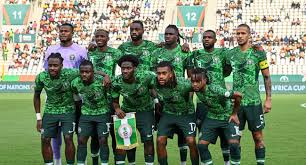In Zimbabwe, the political air is thick again—and it’s not just the Harmattan winds. As the ruling ZANU-PF party prepares for its big conference, whispers have turned into slogans, and slogans are now starting to sound like laws in waiting.
Yes, President Emmerson Mnangagwa—”The Crocodile” himself—may not be done yet.
Despite being in his second and supposedly final term, powerful voices within ZANU-PF are pushing hard to keep him in power beyond the constitutional limit. Their rallying cry? “Vision 2030” — a lofty national agenda to transform Zimbabwe into an upper-middle-income country. But many Zimbabweans are now asking: is this really about the country’s vision, or just one man’s ambition?
The Fine Print… And a Not-So-Subtle Rewrite
Zimbabwe’s constitution, adopted in 2013, clearly states that a president can serve only two terms. Mnangagwa’s second term began after his re-election in 2023. By law, that should be it.
But last year, ZANU-PF passed a resolution backing a term extension. Now, party bigwigs like Daniel Garwe, a ZANU-PF provincial heavyweight, are pushing to make it official, urging delegates to prioritise the amendment at the party’s upcoming national conference.
“Mnangagwa must be there in 2030,” Garwe declared, with all the zeal of a fan chanting at a football match—even though the constitutional referee has already blown the final whistle.
Crocodile Smiles, But Says Nothing… Yet
For now, President Mnangagwa has been playing coy. He insists he’s serving his final term, but hasn’t exactly stopped his party from daydreaming about an encore. And in African politics, we’ve seen this movie before: the hero says no, the crowd insists, and before you know it, the constitution is having surgery.
In Nigeria, we call that “third-term syndrome”—a condition many African leaders catch just before their last term ends. The symptoms? Sudden national dialogues, urgent constitutional reviews, and mysterious movements with names like “Vision 2030.”
Opposition Cries Foul
The opposition, as expected, is not amused. Former Finance Minister Tendai Biti has described the term-extension push as “a dangerous erosion of democracy.” For him and others, the move isn’t about development — it’s a political land grab dressed in national colours.
“They’re planning to amend the constitution not for the people, but for power,” Biti said. “Zimbabweans didn’t suffer through Mugabe’s decades-long rule just to be dragged back into one-man politics.”
The People? Torn and Tired
On the streets of Harare and Bulawayo, reactions are mixed. Some rural supporters, especially those loyal to the party machinery, nod along with “Vision 2030.” Others are less convinced.
“I thought 2030 was for development,” said Tapiwa, a taxi driver in Harare. “Now I hear it’s for keeping one man in office. That’s not a vision, that’s a visionless wahala.”
Many ordinary Zimbabweans are still reeling from inflation, unemployment, and a battered economy. While ZANU-PF paints Mnangagwa as the steady hand steering the ship to prosperity, critics argue that the country has been sailing in circles since independence.
A Familiar African Story?
Zimbabwe’s possible constitutional twist mirrors a trend seen elsewhere on the continent. Leaders in Uganda, Rwanda, and Côte d’Ivoire have all reengineered term limits to stay longer in power. It’s become almost a political rite of passage in some circles.
But for many Zimbabweans, who watched former President Robert Mugabe cling to power for 37 years, the idea of another endless presidency feels like déjà vu with extra spice.
For Mnangagwa to legally extend his term, ZANU-PF would need to amend the constitution — and crucially, sidestep a clause that prevents sitting presidents from benefiting from such changes.
That won’t be easy. But with a parliament largely dominated by the ruling party, and the opposition still finding its feet after a disputed election, the battle may not be in the law books but in public opinion — and, perhaps, the court of history.
As one local newspaper joked, “First it was Mugabe Forever. Now it’s Mnangagwa Till 2030. Who’s next — Mnangagwa Junior?”
Zimbabweans, it seems, are bracing for another long political dance. And as any Nigerian will tell you, once the music starts playing, African politicians are rarely in a hurry to leave the stage.



